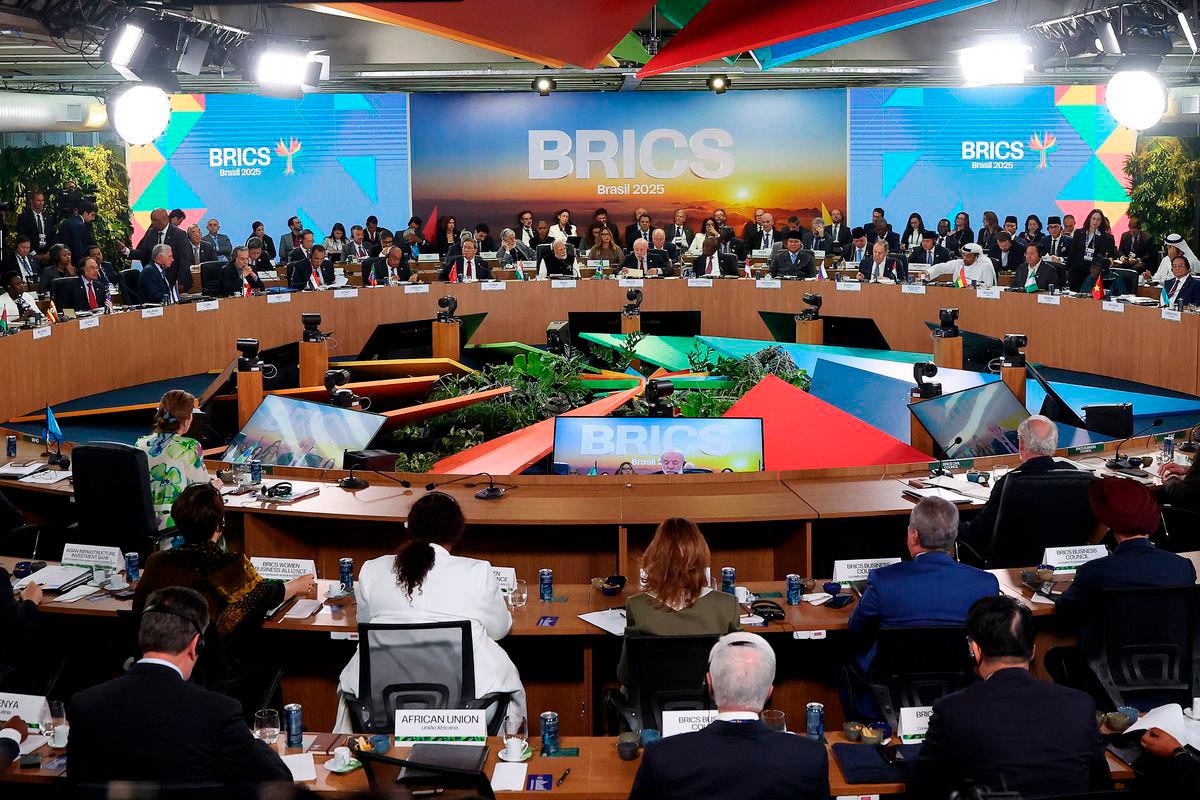PETALING JAYA: China’s strong endorsement of Malaysia’s bid for full BRICS membership presents a major opportunity to expand the country’s global influence and economic ties. But analysts caution it also places Malaysia squarely in the middle of intensifying United States–China rivalry, demanding careful diplomacy.
Nusantara Academy of Strategic Research senior fellow Prof Dr Azmi Hassan said pursuing a BRICS membership was timely, given the shifting global order and US President Donald Trump’s unpredictable economic policies.
“Malaysia made the decision to move closer to BRICS before Trump returned to office, but it looks like the right call now. Trump has been using tariffs to threaten smaller nations, so it is important that countries like Malaysia, as part of the Global South, have a platform where their voices can be heard,” he told theSun.
Azmi said BRICS offers Malaysia economic and geopolitical leverage.
“With China backing us, it shows how close the relationship has become. As the Asean chair, Malaysia benefits from this support regionally and globally. At the same time, it doesn’t mean we are discarding the US.
“We will still trade with the US, but we must also diversify into new markets and platforms. This shows we are not under the umbrella of any single superpower.”
International Islamic University Malaysia international law expert Assoc Prof Dr Mohd Yazid Zul Kepli agreed that China’s endorsement was a major boost but warned it could be seen in Washington as Malaysia leaning closer to Beijing.
“The endorsement is significant because it comes from the most influential member of BRICS. It boosts our chances of joining, but in the context of US–China rivalry, it also risks straining ties with Washington.”
Yazid noted that if Trump ramps up anti-BRICS rhetoric, Malaysia’s membership could be read as siding with China and Russia.
“This could trigger diplomatic or trade pressures, although Malaysia will likely stress its non-aligned stance to balance ties.”
He described Malaysia’s tilt toward BRICS as ‘both a necessity and a risk’, offering access to new markets and stronger bargaining power but also requiring careful diplomacy to avoid Western backlash and overreliance on China.
Economist Prof Geoffrey Williams said the economic rationale was strong, given the bloc’s scale and potential.
“BRICS is a large trade and investment area with a population of 3.2 billion and GDP of US$26 trillion (RM110.98 trillion).
“It offers Malaysia access to a vast consumer market and possible inflows of investment, while also creating opportunities for Malaysian companies abroad.”
Williams stressed that as a small, open economy, Malaysia needs to maintain a wide spread of trade and investment partners.
“Flexibility is important and BRICS offers that. Additional trade and investment will also increase demand for the ringgit and support it over the medium to long term.”
On possible US retaliation, he added that tariffs could be a concern, but Malaysia’s exposure to Washington is limited.
“Recent FDI (foreign direct investment) deals are mostly with US multinationals, not the government. The key is for Malaysia to remain non-aligned and independent, focusing on trade rather than political integration.
“It’s about securing flexibility in a shifting global economy.”
On Tuesday, Prime Minister Datuk Seri Anwar Ibrahim announced China’s support for Malaysia’s full BRICS membership to be expedited.
He described the endorsement as a great honour for Malaysia, enabling the nation to continue playing a significant role on the world stage.
BRICS currently comprises 10 countries – Brazil, China, Egypt, Ethiopia, India, Indonesia, Iran, Russia, South Africa and the United Arab Emirates. Malaysia became a partner country in the bloc late last year.
China has been Malaysia’s largest trading partner for 16 consecutive years. In 2024, bilateral trade reached RM484.12 billion, representing 16.8% of Malaysia’s total global trade of RM2.9 trillion.









